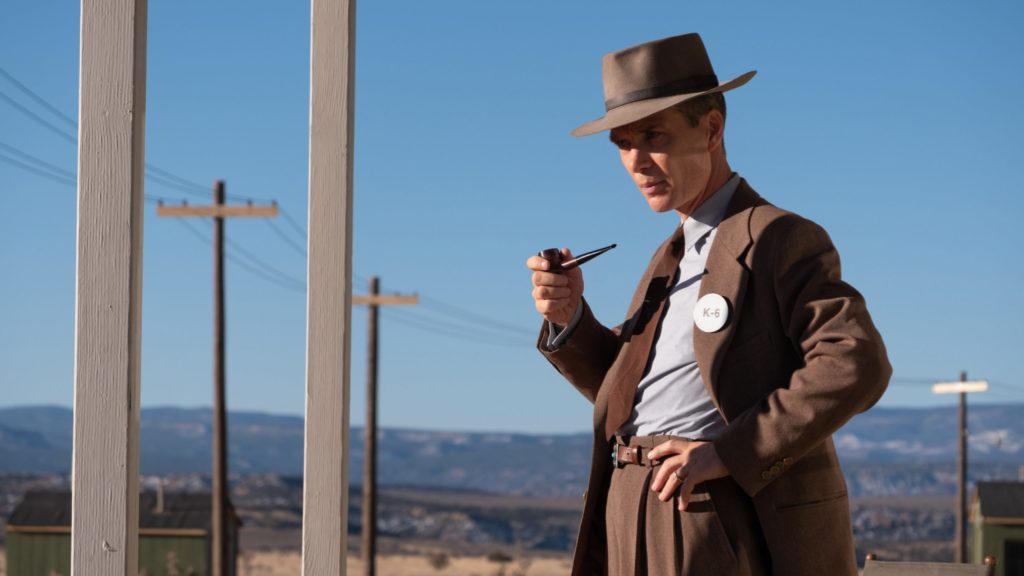Cillian Murphy, who beautifully evokes the physicist J. Robert Oppenheimer in Christopher Nolan’s new film, wears, through about 85 percent of the movie, a worried frown. Nolan does not lionize Oppenheimer but presents him consistently as an ambiguous character, a man tormented by inner demons, external enemies, and moral dilemmas. And Oppenheimer’s frown is, it seems to me, evocative of deep conflicts that endure in the consciousness of the West.
The first of these has to do with science and scientists. In the ancient world, the philosopher was probably the most admired figure; in the medieval context, the saint; in the modern milieu, the warrior or wealthy landowner. But in our contemporary setting, there seems little doubt that the scientist holds pride of place. By a rather deep instinct, we tend to look for wisdom, not from sages, politicians, or religious leaders, but from the practitioners of the hard sciences. It is no accident that George Lucas chose to model the face of Yoda, the Jedi wise man in Star Wars, after the visage of Albert Einstein. And Einstein does indeed figure in Oppenheimer, along with Werner Heisenberg, Niels Bohr, Edward Teller, Enrico Fermi, as well as the eponymous main character. I liked very much the fact that Nolan presents all of these players in their brilliance and celebrates their achievements, but that he does not canonize them or present them as moral exemplars. Heisenberg, we learn, worked for the Nazis; Teller was a turncoat; Oppenheimer was self-absorbed and unfaithful; etc. There is a sharp distinction to be made between intellectual acumen and moral excellence, and in our culture, we too often mistake the former for the latter.
This gives rise to the second conflict—and it is the central theme of the film—namely, the tension between what can be done and what ought to be done. I especially enjoyed the first act of Oppenheimer, which explores the education of the keenly intelligent young American scientist under the direction of some of the leading lights of European science. The newly-minted Dr. Oppenheimer brought the still-novel discipline of quantum mechanics to our shores and commenced to show its theoretical and practical implications, including in the military domain. Animated by his left-wing political views and by his Jewish identity, Oppenheimer was eager to dedicate his science to the development of a mighty weapon that could bring down the Nazis, who were enemies of both his nation and his people. Hence, when invited, he accepted the invitation from the US Army to head up the Manhattan Project, dedicated to the development of an atomic bomb. With the help of his hyper-competent colleagues, Oppenheimer demonstrated that a bomb of epically destructive power could be created, and in the initial aftermath of the Hiroshima attack, he was elated.
But what began to bother him more was whether this awful weapon should have been used. When he visits President Truman, he comments, with real pain, that he feels he has blood on his hands. Catholic moral teaching would support Oppenheimer’s reservations, for the atomic bombings, which resulted in the deaths of over one hundred thousand innocents, clearly violated the principle of discrimination, which dictates that in any act of war, one must distinguish between combatants and noncombatants. Though a number of characters in the film, including an admittedly cartoonish version of Harry Truman, trot out the familiar consequentialist justification that the attacks saved lives in the long run, Catholic teaching would never countenance doing something intrinsically evil in order that good might come of it.
A third prompt for the worried frown of Robert Oppenheimer was the strain between his loyalty to America and his association with Communism. The third act of the film, which I frankly found more than a little tiresome, explores this struggle in some detail. What made the final section of the movie hard to take was not simply its slow pace but also its odd sympathy with the Communism of so many of Oppenheimer’s friends and colleagues. It still appears to be the case in Hollywood that being Communist is rather cool and avant-garde, amounting to a romantic devotion to the poor and the disadvantaged—and this attitude is shared by an alarming number of young people in our country today. In point of fact, Marxist-Leninist ideology has produced economic misery and mountains of corpses wherever it has been implemented, and therefore no responsible person in the twenty-first century should have the slightest regard for it. Moreover, it is simply a matter of historical record that there were indeed Soviet spies associated with the Manhattan Project and that they posed a real threat to national security. Though there were indeed McCarthyite extremists in the 1950s, those who had suspicions of certain of Oppenheimer’s associations were more than justified in their skepticism and should not have been portrayed as semi-fascist boors.
Oppenheimer is a good film, and Oppenheimer himself, in his intelligence, his passion, his deep flaws, a compelling character. But what I take away most from the film is his nervous frown.

